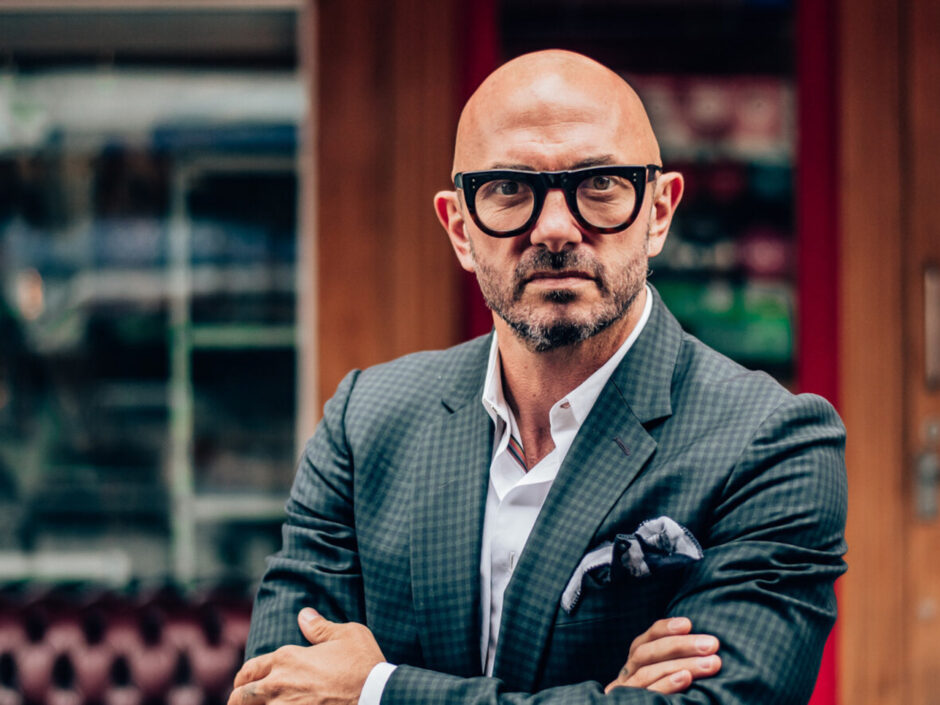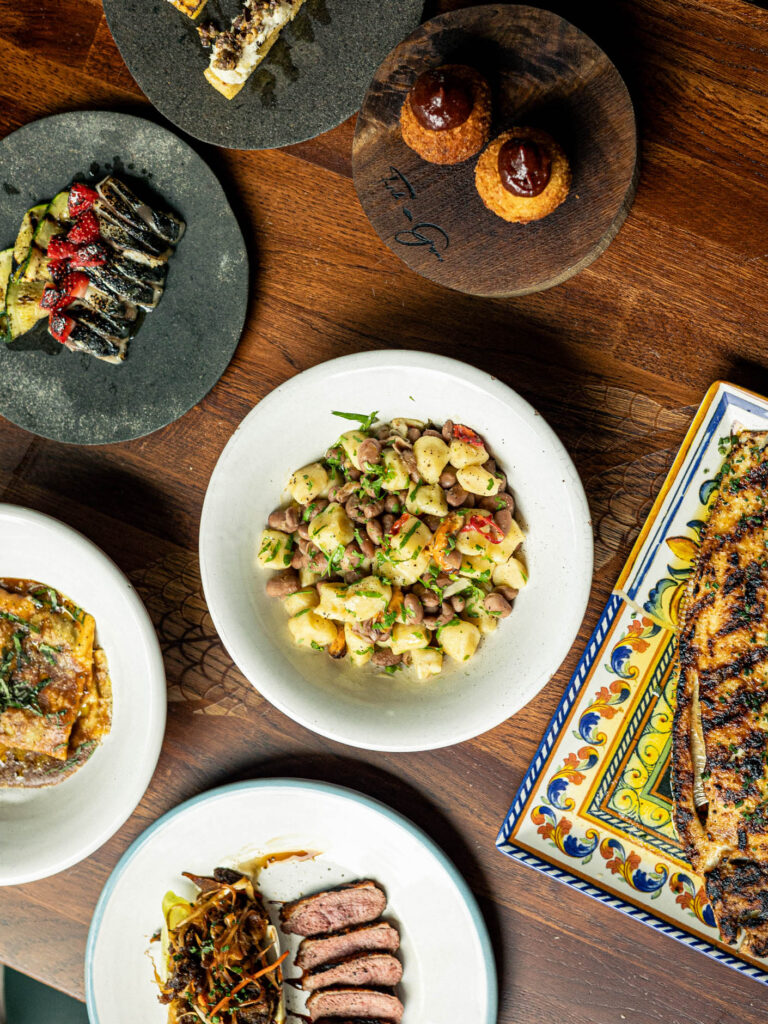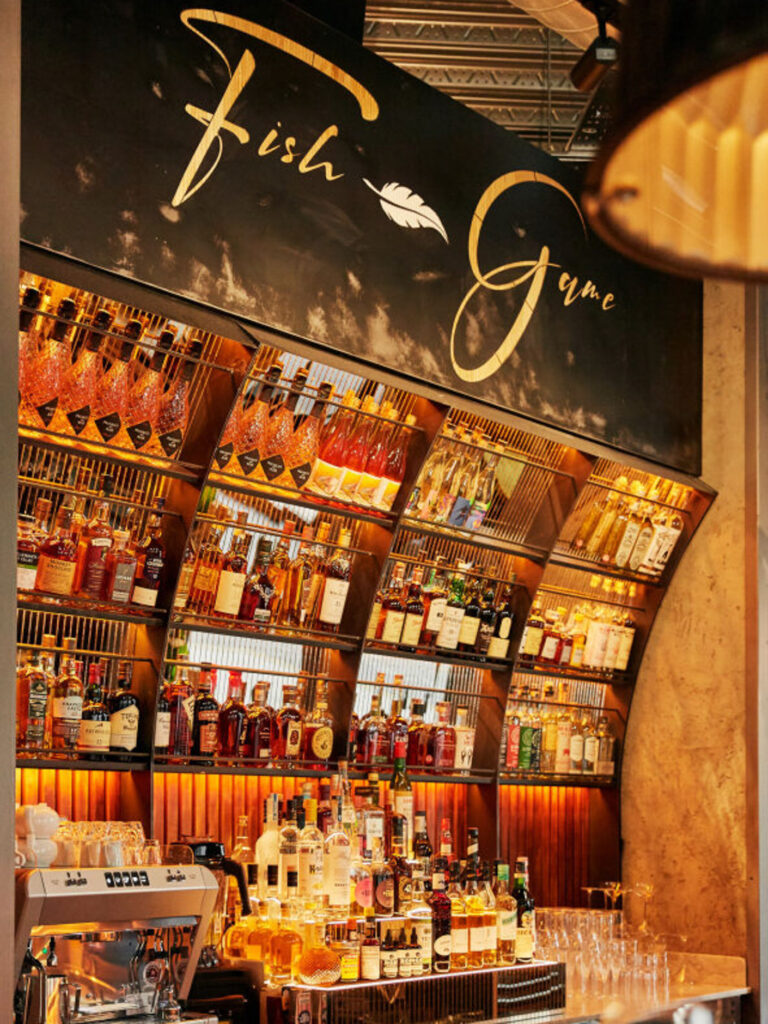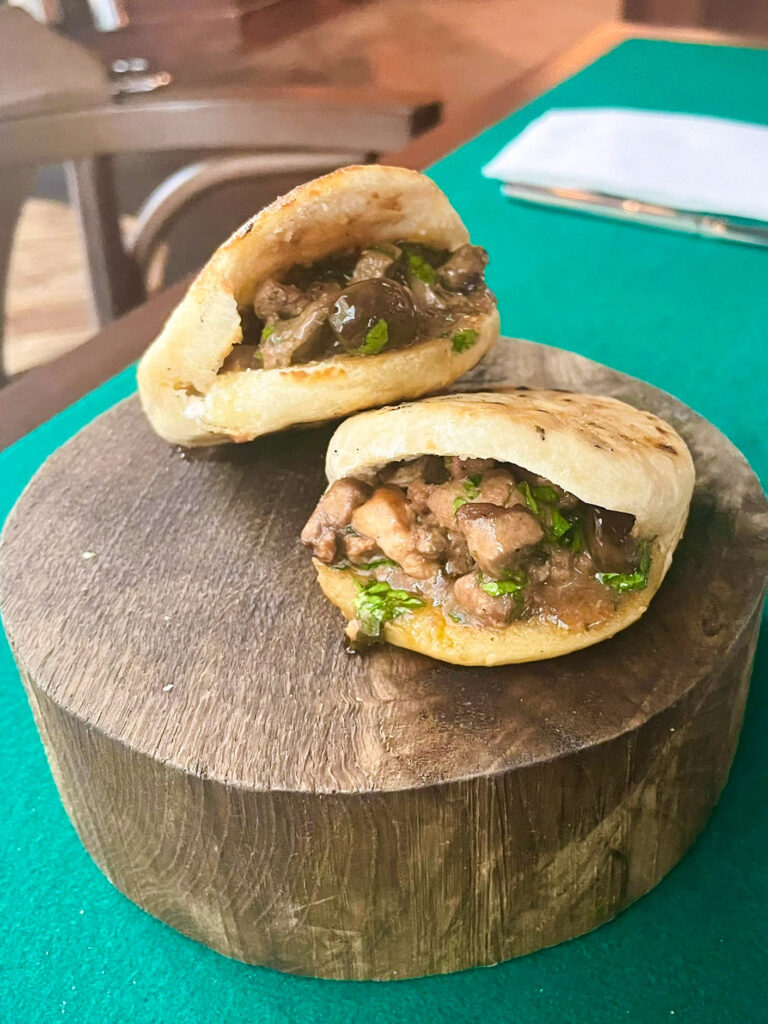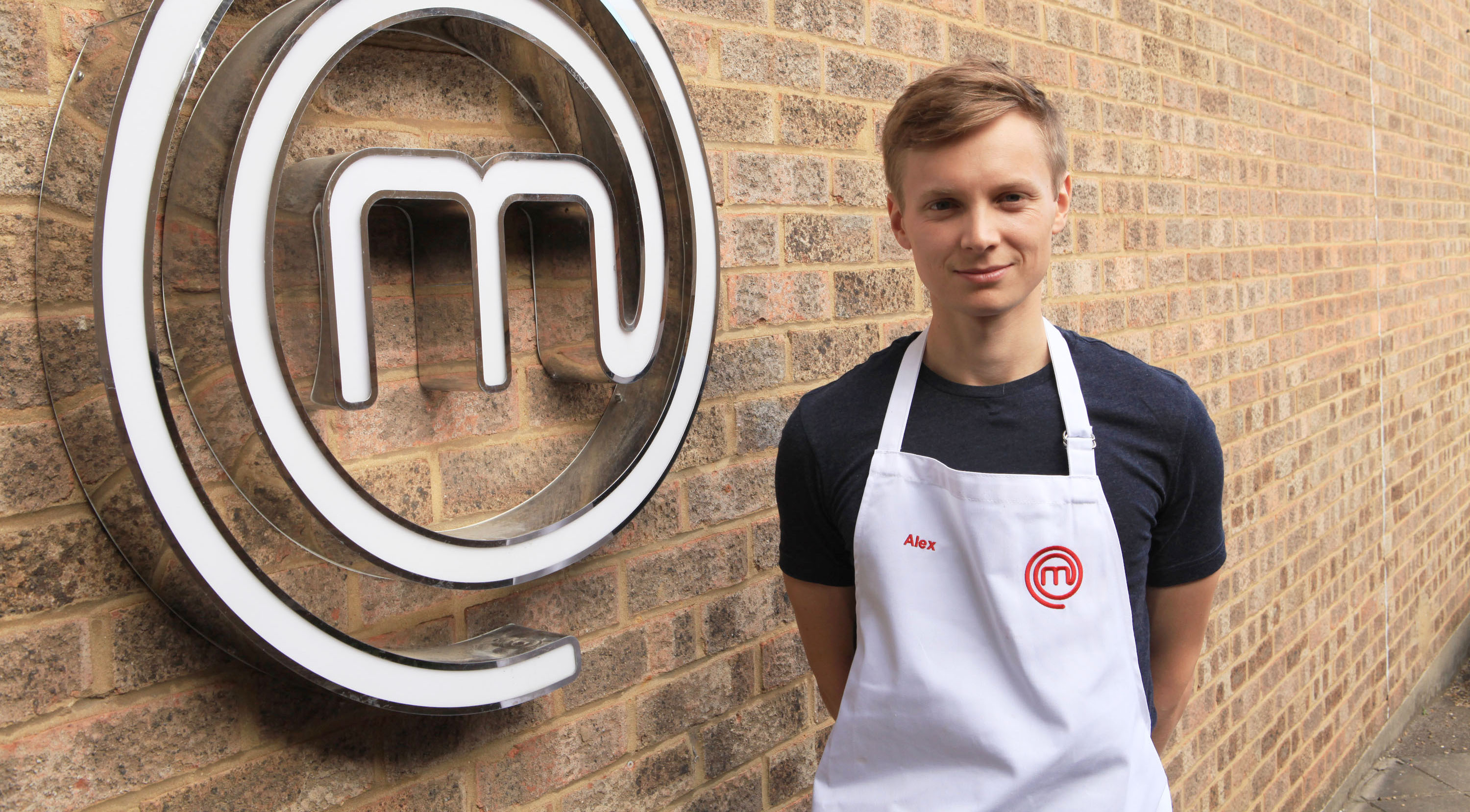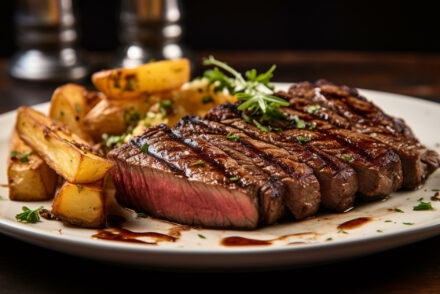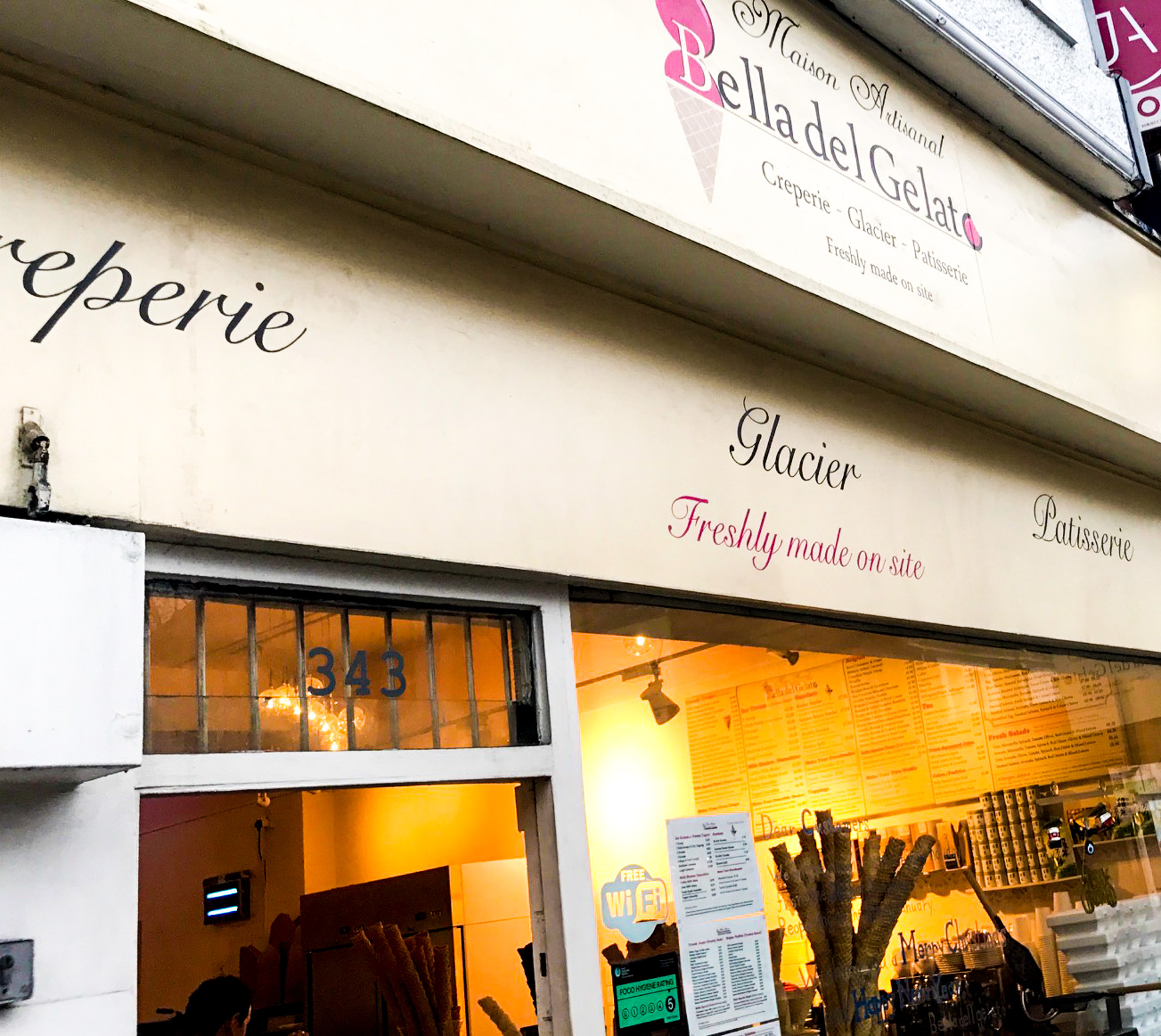Entrepreneurial restaurateur Roberto Costa already has two restaurant chains under his belt: first Maxela, in Italy, then five London branches of Macellaio RC, each with its own focus. Famous for championing Italy’s regional biodiversity, Roberto has recently opened Fish Game, an Italian restaurant serving hyper-seasonal British produce.
Palate contributing writer Amanda David (AD) spoke with Roberto Costa (RC) about his love of regional produce, being awarded the title of Cavaliere and a life-changing lunch at St John.
AD: Roberto, when did you first start to become interested in food?
RC: As an Italian, I would have to say when I was born! My family was quite poor but I grew up with the mentality that it was better to have a full fridge in the house than a full bank account.
I had a lovely childhood. Every Sunday was a feast with all the family, all the generations together. We would talk about our family, learn about our past and talk together about our plans for the future. The epicentre of everything was the dining table. My mum used to start cooking the ragu at eight in the morning – a Genovese ragu called Tocco, which means ‘touch’, because it is all about balancing the ingredients – made to go with the handmade ravioli. I’d wake up about 9:30am to the sound of it simmering and I would try to dodge past my mum with a piece of bread to dunk in it. I have been passionate about food ever since.
I started working as a waiter at fifteen years old and I was very lucky as I immediately knew that this was what I wanted to do with my life. To understand this so early, it helped me a lot and made me focus on one path.
AD: You weren’t tempted to cook?
RC: Of course. I cooked for seven years, from 25-32 years old, in my family restaurant. I always tried to steal my mum’s family recipes but it was difficult. In a restaurant, you weigh everything precisely because you have to calculate the gross profit and so on; for my mum, it was the more, the better – olive oil, sauce, everything – plus she would cook something one way one week and a different way the next week, depending on what she had. There were no recipes, just an understanding of flavour and balance, and generosity.
I loved working in the kitchen. This is when I moved from passion to obsession. I think, to achieve something in life, you need to be a bit obsessed; passion is not always enough. Lots of people would say they are passionate about food, but obsession means you go deep; really deep, and constantly, into everything. For me, my obsession meant I wanted to know more and more about Italian biodiversity. Things changed for me.
I started learning about my Ligurian heritage and I discovered that even though Genoa has a coastline our traditional food is not from the sea but from the hills, because centuries ago the Genoese lived in the hills to protect themselves from invasion. Our traditional food includes herbs, vegetables and sauces like pesto. Pesto was first made in Genoa because it’s the only place where basil – which is from the mint family – doesn’t have any mint flavour. It’s completely different; lighter and much more delicate. Originally pesto was a garlic sauce, which has antibacterial properties.
That’s why Italian cuisine is so powerful. It’s all about the land, the wind, the sea, the mountains, the countryside; everything together
AD: So, like Chinese food, it served as both food and medicine?
RC: Absolutely. Then I started to think about that; years later, when I had the opportunity, I travelled all around Italy and studied traditional dishes from every region. I opened Maxela with my business partner – in Genovese dialect it means butcher, the same as Macellaio – we opened 12 restaurants, all around Italy. And, in every region, I found amazing traditional food; that’s why I became a little bit obsessed. Then I started to really study biodiversity and I discovered beautiful things like Gragnano pasta. If you think about Gragnano you have to think about the village, built between the mountains and the sea in a semicircle to funnel coastal winds through the town to dry the pasta outside in the most efficient way.
That’s the beauty of Italy, in culinary terms. In my opinion, we are the exact opposite of the French: we are all about simplicity. For us, less is better. But in Italy, people tend to select and use only what grows on their doorstep; I wanted to pick the best from every region, like you do here in London. Here I can choose Fior di Latte from Agerola. It’s not just mozzarella. Agerola is a little village just under the Monti Lattari, literally ‘milk mountains’, and they have a breed of cows called Agerolese. Milk from these cows is used to make Fior di Latte where the acidification is for 12 hours, not six, so it is almost like buffalo mozzarella; it is this kind of detail that made me obsessed with quality and want the best possible version of pasta, mozzarella and so on.
Fassona beef is another example. My grandfather was a butcher and for him, sustainability was a normal way of life; he used to buy a cow and had to sell it all before he would be able to buy another one, so for every fillet steak he would need to sell some offal or cheaper cuts. Macellaio is like this; we buy the cow. It’s not right to kill an animal just for steak, you must use everything.
AD: It’s interesting how nose-to-tail eating has grown in popularity and become quite trendy over the last ten years or so, when it’s how poorer people have been feeding their families for centuries.
RC: Absolutely; this was my life, nobody taught me this. I just watched my grandfather. In 2000 I was the first one in Genoa, and one of the first in Italy, to start a butcher/restaurant where we break down the whole animal on site. I also started dry-ageing beef. I’m not saying Fassona beef is better or worse, but it is different. It comes from Guarene, a village just opposite Barbaresco in the heart of Piedmont, where they have white truffle, Nebbiolo grapes, hazelnuts and Fassona. It’s a beautiful region. Believe me, I’ve never eaten good food that comes from an ugly place – never!
In 1856 in Guarene the first cow with naturally hypertrophic muscle was born, making Fassona the leanest breed of cow in the world; the meat has less cholesterol than salmon or chicken. I wanted to prove at the time that you don’t need a lot of fat to get flavour; it’s more about the animal’s life and what they eat. Then it’s how you treat the meat: I dry-age the legs for two weeks, the anterior part for just one week and the steaks for seven to nine weeks – it’s all different.
AD: Did you dry-age the meat because it was so lean?
RC: In my opinion, you need to dry-age the steaks for this kind of time to get the flavour I wanted. Because it isn’t fatty, the meat is quite sweet; for raw meat, it’s the best in the world. Take beef carpaccio: if you balance the sweetness of the raw Fassona beef and the spiciness of extra-virgin olive oil from Tuscany, there’s no comparison. Just two ingredients, but you have the best Italian biodiversity in your mouth. That’s why Italian cuisine is so powerful. It’s all about the land, the wind, the sea, the mountains, the countryside; everything together. We need to promote this, the true cuisine. In the 80s everybody became interested in making Italian food and they started adding cream into carbonara, ketchup into tomato sauce and so on. I’m not blaming them – people can do whatever they want – but real Italian cuisine is completely different.
AD: Given your passion for Italian biodiversity and ingredients, how did you come to open Fish Game?
RC: About 10 years ago, I fell in love with English cuisine after eating at St John. At the time, I thought English cuisine was just fry-ups and fish and chips. I think perhaps most English people don’t fully appreciate their own cuisine, which is strange to me. A friend of mine took me to St John and I had a beautiful lunch – Fergus Henderson is a genius, in my opinion – with game, fish and pork. It was so tasty and reminded me of my grandmother’s food, that pure taste of the ingredients. From that moment, I started to travel all around Great Britain: Scotland, the Lake District, Cumbria, Cornwall, everywhere.
AD: Just as you had in Italy?
RC: Exactly. And I had incredible meals, made with local ingredients: rabbit in Barnsley, beautiful white pig in Yorkshire, seafood in Cornwall. I had the same philosophy of biodiversity, just applied to Great Britain, and I wanted to mix that with Italian recipes. This is why the Fish Game menu has, for example, Tigella; it’s a blend of Italy and Britain, in that it is a traditional bread from Emilia-Romagna, named after the pan it is cooked in, usually served split and stuffed with Parma ham. Here I have filled it with rabbit from Devonshire, a traditional Ligurian recipe with black olives, extra virgin olive oil, thyme, lemon juice and garlic.
AD: What brought you to London?
RC: We came in 2012 for the Olympic Games and I fell in love with London; it’s such a cosmopolitan city, and just a two-hour flight from Genoa. London has been like a university for me. There is so much competition in the hospitality sector, and you can only improve if you compete with others better than you. London has all the different cultures, but expressed in a vertical way; you have Indian street food in Camden, and Michelin-starred Indian food in Mayfair.
I can compare Chinese and Italian cuisines; if people don’t know Italian food they think it is all pizza and pasta, but it’s so much deeper, and different in every region. It’s the same for Chinese food. People think of spring rolls and Cantonese rice but every region is unique, with so much variety.
My death row meal would always be at St John
AD: Have you read Fuchsia Dunlop’s latest book, Invitation to a Banquet? If not, I really recommend it – it’s about exactly this idea, I think you’d enjoy it.
RC: No, but thank you, I will look for it!
AD: So, back to London.
RC: Yes – I fell in love with London, and the competition, and I knew that I could improve myself a lot. To tell you the truth, the biggest satisfaction of my life has been in London. Eight months ago, I became an Italian knight (Cavaliere) because as an Italian entrepreneur I work with thousands of employees in Italy to help them achieve their goals and I work with and support many Italian producers.
AD: Yes, I read about that – congratulations, that is a remarkable achievement. How do you marry the championing of Italian produce with this new focus on British ingredients at Fish Game?
RC: Don’t get me wrong, I don’t think there are any boundaries to quality ingredients. I cannot eat grouse or Dover Sole in Italy like I can here, but here you can’t eat fresh red prawns from Santa Margherita. That’s the beauty of it. I’m just at the beginning of my journey with Fish Game.
AD: Do you see this becoming a chain like Macellaio RC?
RC: I hope so. It’s a really dynamic concept; you could open a restaurant like this with seating or you could have just a counter, the ovens behind it and a till – like the Barbary, or Casa Brindisa.
AD: Just to finish, who are your favourite chefs, or what are your favourite restaurants, in London at the moment?
RC: St John and Fergus Henderson, without a doubt. Then, I really like Brat and Fallow. These are my top three. But my death row meal would always be at St John.
December 2023.
Photos provided courtesy of Roberto Costa and Amanda David.

